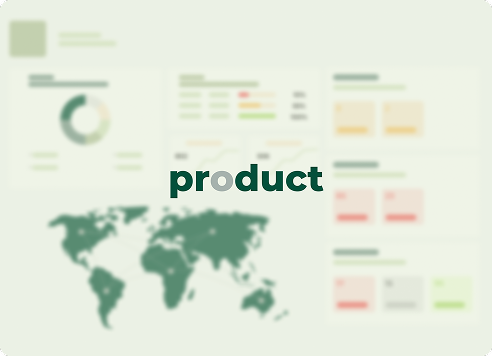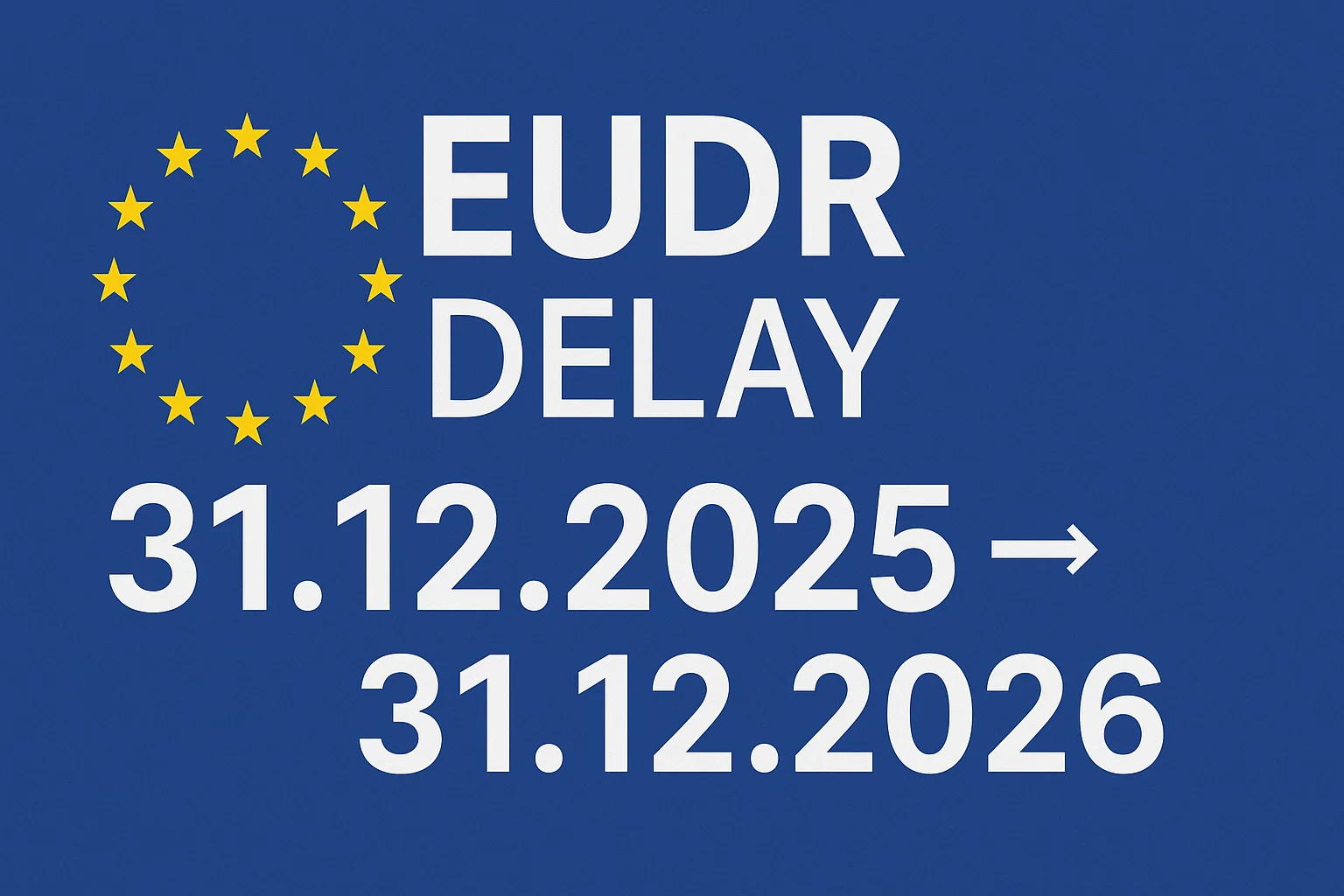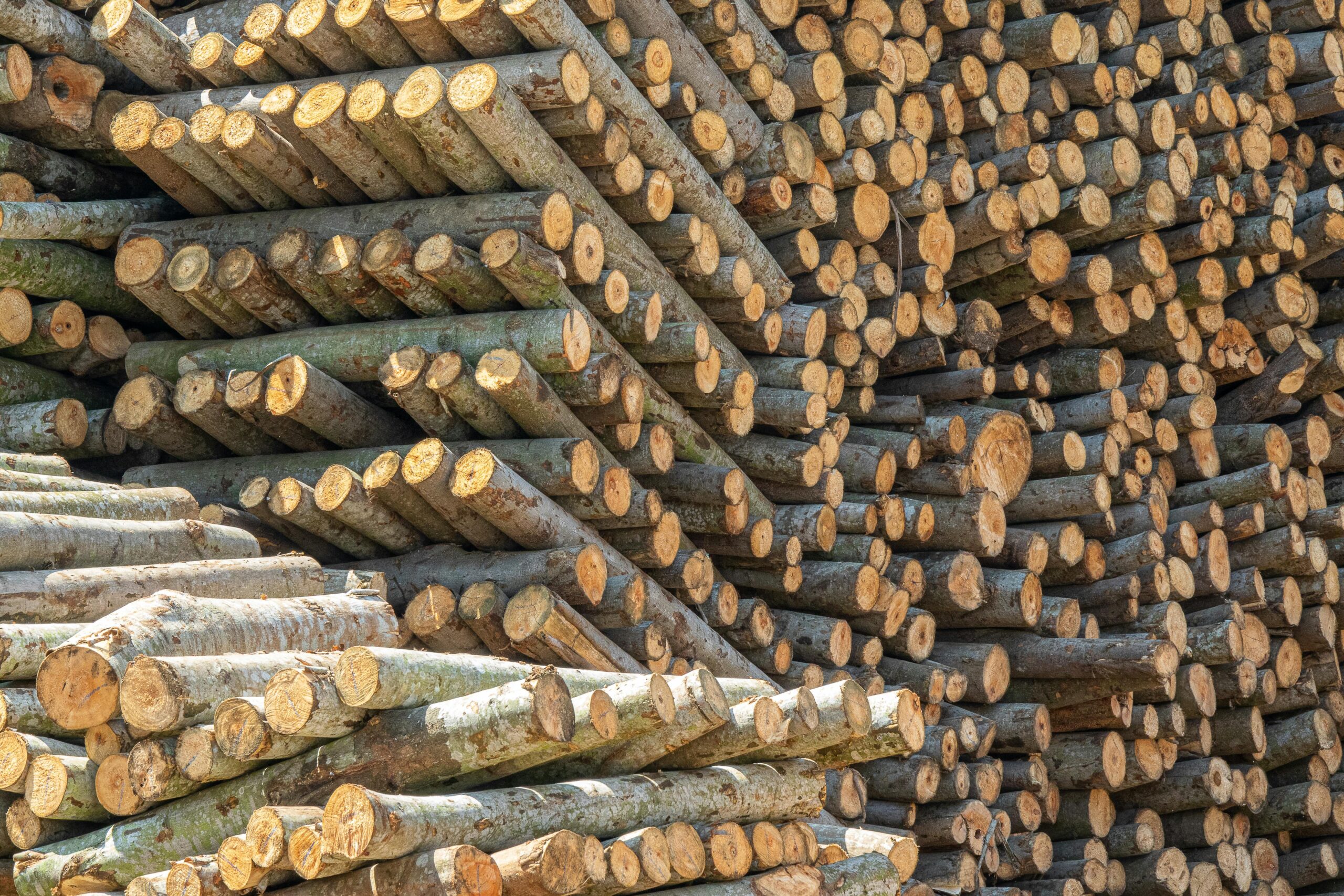This blog post focuses on key aspects of the EU Deforestation Regulation (EUDR) regarding due diligence. It elaborates on the various requirements and elements of the due diligence process, which are crucial for understanding how EUDR impacts businesses in the EU.
EUDR – A short introduction
The EU Deforestation Regulation (EUDR) is an important milestone in protecting the world’s forests and combating deforestation and forest degradation. The regulation requires businesses to ensure that the raw materials they trade are sourced legally and sustainably. The raw materials the EU aims to ensure are sourced legally and sustainably include coffee, cocoa, soy, palm oil, cattle, plantation wood fiber, and plantation rubber.
The EU adopted the EUDR on December 6, 2022, and it will come into effect at the end of 2025. Deforestation is one of the major causes of climate change and biodiversity loss—two of the most pressing environmental challenges we face today.
EUDR – Due Diligence
Since the introduction of EUDR, 11 significant changes have been made under the Due Diligence category, which all companies should be aware of.
EUDR – A Quick Introduction
-
5.7 Certification schemes
Certification schemes can potentially assist supply chain actors in their risk assessment, provided that the certification contributes the necessary information for EUDR compliance. It is important to note that operators and traders that are not SMEs must still conduct due diligence and remain responsible for any EUDR violations, regardless of whether they use certification schemes. The Commission is preparing guidance on the role of certification in risk assessment and mitigation.
-
5.8 Documentation
Operators must collect, structure, and store documentation for five years from the date of marketing or exporting EUDR-relevant products. The documentation must include proof of how due diligence was conducted and the measures taken if risks were identified. This information must be kept for at least five years and must include reference numbers from the due diligence process.
-
5.12 Compliance timeframe
When verifying compliance with the “deforestation-free” requirement, the focus must be on whether the crop has contributed to deforestation since the cut-off date of December 31, 2020.
-
5.13 Product documentation
Documentation is only required for products covered by the regulation. No documentation is required for products not subject to EUDR.
-
5.14 Reporting obligations
Non-SME operators must prepare their first annual reports after December 30, 2025, covering activities in 2025. Companies already reporting relevant elements under other EU legislation (such as the Corporate Sustainability Reporting Directive (CSRD)) do not need to duplicate reporting.
-
5.15 Due Diligence Statement
The template for the due diligence statement is the same for all commodity sectors and is based on the form in TRACES.
-
5.16 Format for Due Diligence
There is no predetermined format or questionnaire for conducting due diligence. Due diligence depends on the specific context and supply chain. However, it must cover information requirements, risk assessment, and risk mitigation.
-
5.17 Registration in TRACES
Operators and traders must register in the TRACES information system if they are subject to the requirement to submit a due diligence statement. Alternatively, they can use an authorized representative, who must also be registered in the system.
-
5.18 Use of Satellite Images
To document the absence of deforestation, there is no requirement for specific satellite imaging tools or resolution thresholds.
-
5.19 Submission Frequency
A due diligence statement can cover multiple physical batches/shipments. The operator must confirm that due diligence has been conducted for all relevant products and that there is no or only negligible risk of non-compliance. A new statement must be submitted when the volume of products is fully marketed or exported. The statement should cover a maximum period of one year and must relate to existing goods.
-
5.20 Final submission deadline
Operators must perform due diligence before marketing or exporting relevant products. The DDS reference number must be made available to customs authorities, and the DDS must be submitted before the customs declaration. For goods produced in the EU, the DDS must be submitted no later than when the harvested materials are available, and a purchase/delivery agreement has been made with a third party.
Stay updated with product.com
EUDR is complex, and companies are advised to seek guidance and stay updated to navigate the regulation’s details correctly.
With the updated points, a clear definition of due diligence requirements is provided. EUDR is complex, and companies are encouraged to seek advice and stay informed to comply effectively.
Product.com offers a solution that simplifies EUDR compliance. We help you keep track of your HS codes and ensure compliance through automated and reliable data processing. Our platform provides a solution that directly integrates your data into the ‘TRACES’ information system.
In short we collect your data, conduct risk assessments of your entire supply chain, and help mitigate identified risks.





